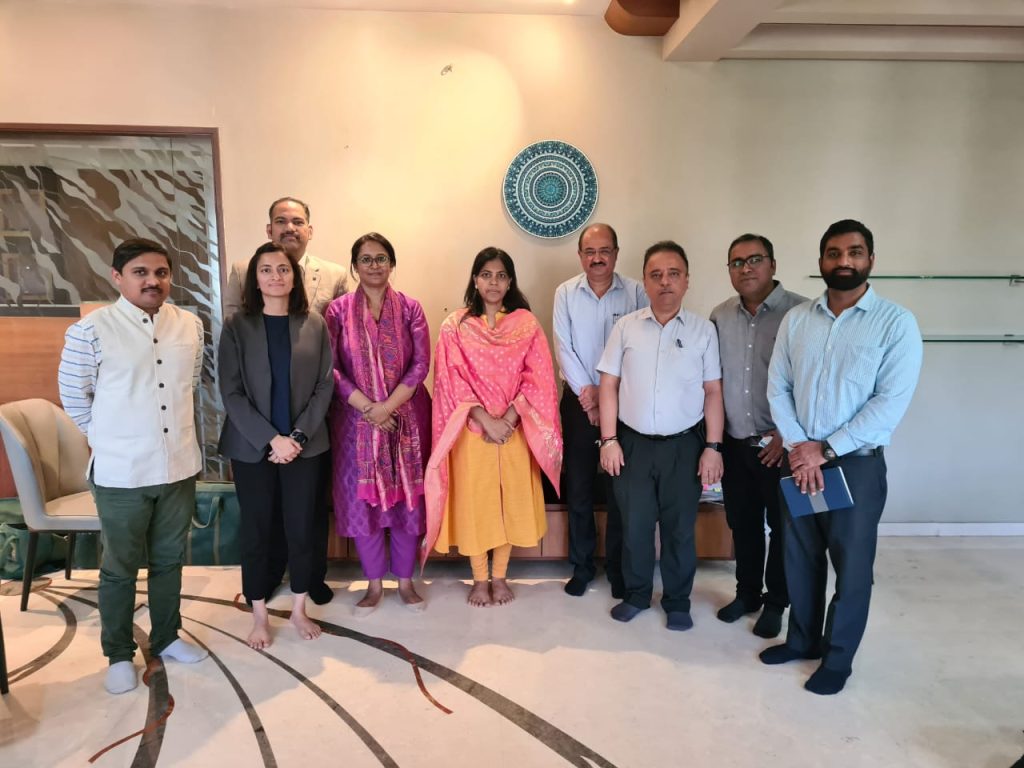Ramping up UrbanShift Activities in India: Pune and Surat Take the Lead

The Global Environment Facility (GEF) has launched the Sustainable Cities Impact Programme with the brand name UrbanShift, which is supporting 23 cities in nine countries, including three primary cities – Chennai, Pune, and Surat – and three secondary cities in India for participating in the GEF-7 financing round (2018-2022).
To achieve sustained and effective action at the city level, government officials and urban practitioners must be equipped with the knowledge and tools required to transform their urban environments in an equitable, nature-positive manner. UrbanShift focuses on both infrastructure and nature-based solutions for urban sustainability, engages with city-based organisations and the private sector, and integrates gender and inclusion into planning and investment decision-making in cities.
UrbanShift is using a two-pronged approach that brings together investments for more integrated sustainable cities (National Child Projects) with a knowledge-sharing and learning platform (Global Platform).
UrbanShift is funded by the Global Environment Facility and led by the UN Environment Programme (UNEP). UrbanShift’s global capacity-building initiative is managed in partnership with UNEP, the World Resources Institute, C40 Cities and ICLEI – Local Governments for Sustainability. UNEP, the UN Development Programme, World Bank and Asian Development Bank (ADB) are leading the execution of UrbanShift’s local projects in the nine countries of practice.
The UrbanShift project (National Child Project) in India is being implemented by the Ministry of Housing and Urban Affairs, Government of India, and the National Institute of Urban Affairs (NIUA), in partnership with UNEP, ADB, Greater Chennai Corporation, Pune Smart City Development Corporation Limited, Pune Municipal Corporation and Surat Municipal Corporation. The National Child Project in India, titled ‘Livable Cities in India’, is trying to demonstrate low-emission, resilient, nature-based, inclusive and sustainable urban development in selected cities (Pune, Surat, Chennai) and support scale-up nationally.
To complement local (National Child) projects, the Global Platform is designed to be a global convening space, connecting experts and city practitioners working towards sustainable urban development, bringing together the individual actions of the national child project and creating opportunities for cities to advance their sustainability agenda.
UrbanShift offers cities a suite of activities to strengthen their integrated planning skills, from workshops and national dialogues to geospatial analyses, climate action support, and more. The platform provides cities with opportunities to enhance their technical capacities, engage with the private sector, and exchange best practices for sustainable urban development with their peers at virtual and in-person events (please visit the website for more information about the project activities).
ICLEI is leading the Global Platform activities in the Asia region, covering India, Indonesia and China. ICLEI South Asia is leading this component in India.
Through UrbanShift’s global platform, the programme has started to build and strengthen institutional capacity in the participating cities. As it moves toward the full implementation phase, UrbanShift is well-positioned to collaborate with cities to develop local projects that tackle climate change and enhance urban biodiversity while supporting equity and green jobs.
UrbanShift was officially launched at Climate Week NYC in September 2021. Since then, its global platform has been bringing valuable expertise to cities to help build on the work of the local projects. The recently launched UrbanShift annual report demonstrates how the programme and its beneficiary cities are acting in areas ranging from nature-based solutions to climate finance.
As part of the project, ICLEI South Asia, along with representatives from UNEP and NIUA, met several key stakeholders in Pune and Surat to discuss and finalise the project activities, timelines and understanding of capacity building priorities, among other issues.
During these meetings, ICLEI South Asia highlighted the synergy between the country project and the UrbanShift Global Platform, which has a specialised set of activities/offers that focus on enhancing a city’s capacities in integrated urban planning strategies through capacity building events, peer exchanges, advocacy, etc. The stakeholders were also informed about the Global Platform’s work plan for India and the upcoming regional UrbanShift Forum this year.
Going forward, ICLEI South Asia will offer the UrbanShift project cities a suite of activities to strengthen their integrated planning, while leveraging the power of dialogue, networking and collaboration.

UrbanShift Team Meeting with Smt. Shalini Agarwal, IAS, Municipal Commissioner, Surat.